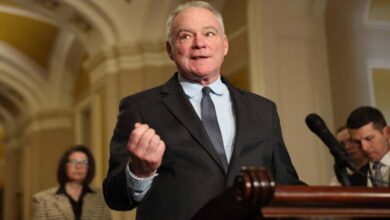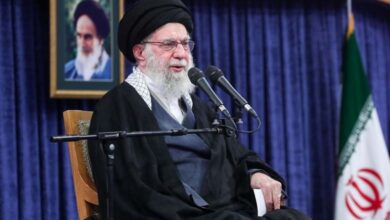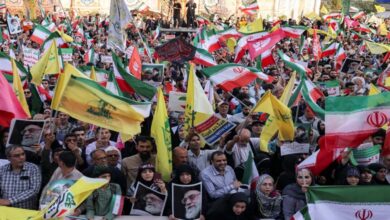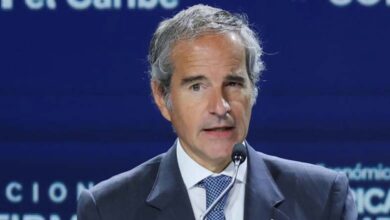Ibrahim Munir: We will not fight a power struggle… Did the Brotherhood abandon political work?
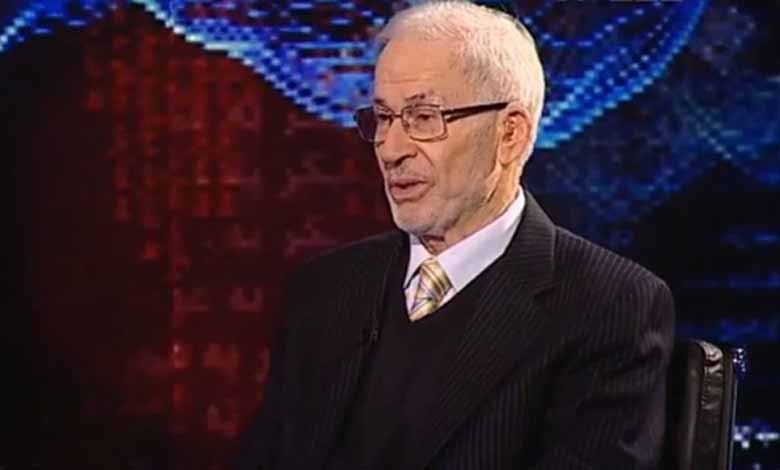
Ibrahim Munir, the leader of the London Front, who dreams of leading the old Muslim Brotherhood, said in an interview with Reuters yesterday that he claimed that the group would not “engage in a new power struggle” through the ballot box. This suggests, at first glance, that the group, which is classified as a terrorist organization in a number of countries, might give up political work in exchange for reconciliation with the regime of Egyptian President Abdel Fattah el-Sisi.
Munir’s statement is in fact contradictory to the fact that the Brotherhood, with all its movements and its four fragmented fronts, has sought, and continues to seek, to participate in the national dialog, which President el-Sisi called for at the end of April during the Egyptian family breakfast. during the month of Ramadan.
El-Banna’s recommendations
Munir’s interview also contained many inaccuracies and contradictions; The most important of these maneuvers is that “the Brotherhood will not enter a new power struggle,” which represents a departure from the commandments of Hassan el-Banna, the founder of the Muslim Brotherhood, who said in one of his commandments: “A Muslim will not be Muslim unless he is a far-sighted politician in the affairs of his nation, concerned with them and jealous for them.”
The group’s renunciation of political activity was confirmed by the website of the Qatari Al-Jazeera channel, which is known for its support of the Muslim Brotherhood. “Munir ruled out that the group would return to compete for power through the ballot box.”
The real meaning of this statement was not immediately understood, especially since the group would not be able to participate in any competition for power, not through the boxes, and not even with the violence similar to what the group has been waging over the past 9 years, if not since 2011, given its involvement in the “Big Escape” and prison break on the night of “Friday of Anger,” which resulted in the smuggling of many of the group’s leaders with the help of Hamas and Hezbollah at the time.
In both cases, Munir cannot pledge that the group, which is divided against itself, will abandon political action, especially since he himself is in conflict with the Istanbul Front led by Mahmoud Hussein, who has long boasted about his channels of communication with the Ikhwan al-Dakhil Front to influence the Brotherhood within in Egypt.
Remarkable time
Munir’s statement, through an international platform, and his pledge, which will not enjoy great or even moderate consensus within the divided group itself, comes at a very remarkable time. It is expected that the national dialog in Egypt will begin soon in the presence of representatives of all political parties and movements, with the exception of the Muslim Brotherhood, amidst official statements issued by the coordinator of the dialog, Diaa Rashwan, the head of the Egyptian Journalists Syndicate, that the group has no place in the new republic, for the first time since the founding of the Arab Republic of Egypt in 1953.
In a televised statement on July 5, Rashwan said: “Those excluded from attending the National Dialog by consensus of council members are anyone who practiced, incited, participated in or threatened violence, especially the Muslim Brotherhood, which is at the forefront of those who did so. They are excluded from the dialog according to the council’s decision, and the killers cannot have a place in the dialog.”
Rashwan’s statements resolved the controversy that was raised over the past few months about the possibility of reconciliation with the Muslim Brotherhood, especially in light of the fact that the two main fronts of the group, led by Mahmoud Hussein in Istanbul and in London led by Ibrahim Munir, seek to communicate with Arab and foreign countries, foremost among them Britain and the United States, in light of a visit to the region by American President Joe Biden, who is known for his unlimited support for the Muslim Brotherhood and the currents of political Islam that destroyed Syria at the instigation of Hillary Clinton, the American Secretary of State under Barack Obama, according to a leak published by wikileaks for an email, among the so-called “Arab Spring Revolutions” which aimed at elevating the Muslim Brotherhood to rule in a number of Arab countries.



